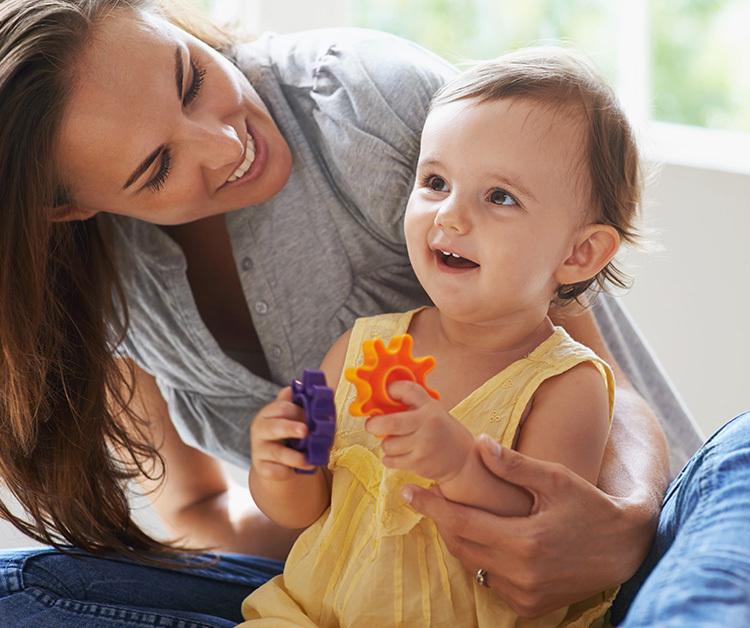Due to maintenance, rewards points for receipt uploads will be delayed. Thank you for your patience!

Let’s celebrate your baby’s transition into toddlerhood and their growing understanding of the world around them while they continue to amaze us at every turn. Here are the sorts of 12-month-old milestones you’ll see around this time.
Medically reviewed by a board-certified pediatrician
Happy birthday to your little one! In one year, your baby has grown into a unique little person capable of doing many things that seemed impossible when you first laid eyes on each other. Keep in mind, development tracks vary greatly from child to child, so don’t worry about the pace your toddler goes—everyone’s different.
As your child’s understanding matures, they can respond to one-step commands (“Give me a kiss”) or questions (“Where’s doggie?”). They try to figure out how things work by pushing buttons on a remote control or swiping at a tablet screen. They experiment by copying your actions and through trial and error. Part of the process of discovery includes banging, poking, mouthing, and sometimes throwing toys. All kinds of excitement! Having a safe area to explore will help make this less stressful for you and more fun for them.
One in four babies begin to walk between 11 and 12 months. Even if your child isn’t there yet, they might be able to stand while holding onto you or a piece of furniture since their strength and coordination have improved over the last year. They may cruise along furniture and even take a few shaky steps between pieces.
Better coordination in their fingers also allows your child to try new kinds of fine motor play, such as turning the pages of a book and feeding themselves. Get ready because meal time just got interesting.
Was that a first word? It’s considered an early word when your baby links particular sounds with specific people or objects. “Mama” and “Dada” are common first words for about half of all babies. Your baby might also name a bottle or blanket "ba ba." Cute, yes. But smart, too! This development is an important leap forward, as they attach sounds to objects and try to say words the way you do.
Even if your little one isn’t babbling yet, they’re probably doing a good job of communicating through gestures, such as outstretched arms when asking to be picked up.
Right now, your one-year-old might be a little copycat, but this is more than play. They are practicing how people act, for example, by brushing their hair like you do. They can be pretty social with loved ones at this age, but unfamiliar people can bring them distress, or stranger anxiety. This phase will pass but might take a little patience on your part.
Separation anxiety is also common around 12 months. As your baby bonds with you and begins to process the idea that things they can’t see (like you) are still out there somewhere, they develop a concept called object permanence. A quick separation and a familiar signal, such as a wave goodbye, can help them understand that this is just a temporary absence. A simple transition into a new activity as you walk out the door might be a helpful distraction as well.
Hitting their first birthday is, of course, itself a big milestone. But your 12-month-old baby’s developmental milestones aren’t about to stop coming now. As they continue to delight and amaze us with their progress, get ready for even more incredible developments in the next few months as you both head into their second year.
All information on Enfamil, including but not limited to information about health, medical conditions, and nutrition, is intended for your general knowledge and is not a substitute for a healthcare professional's medical identification, advice, or management for specific medical conditions. You should seek medical care and consult your doctor or pediatrician for any specific health or nutrition issues. Never disregard professional medical advice or delay seeking medical treatment, care, or help because of information you have read on Enfamil.